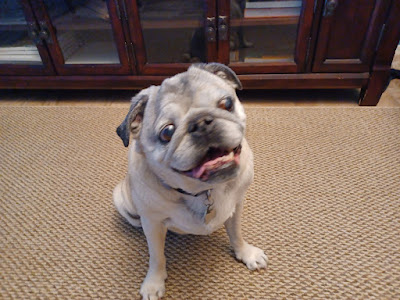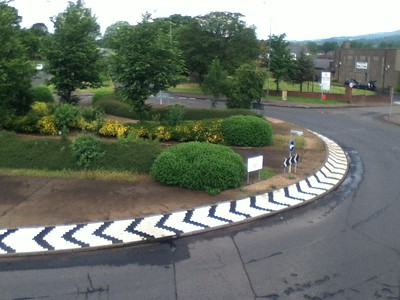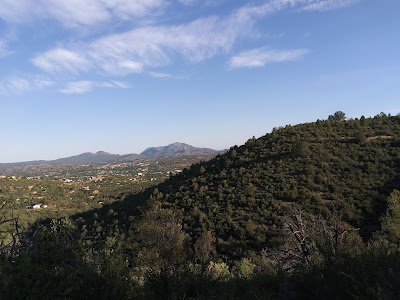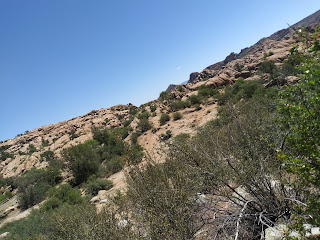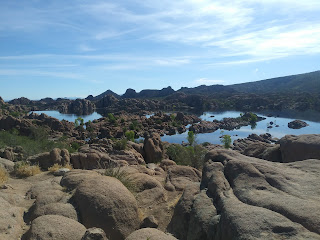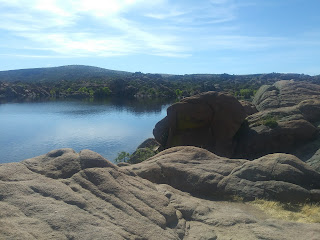over the past few months I've been devouring audiobooks on the weekends. I basically listened to Stardust in one long stretch on a Sunday, knitting and gardening and crafting and tidying the house as I did so. (in the meantime, my backlog of podcast subscriptions is somewhere close to 100 hours. trade-offs, eh?)
there was plenty of Tana French and a bunch more Barbara Kingsolver too. and then, friend Michelle recommended Alix E. Harrow's Starling House somewhere around the end of August. I loved this book, despite its few melodramatic tendrils of YA-ness, which honestly I cannot really fault it for anyway. the ending was excellent and poignant and deep and gritty. so, so good.
I'd heard of Alix E. Harrow quite a bit, so I somehow assumed she'd been around for many years and that I was super late to the fangirl party... but nope, her first novel was published only five years ago. (I just finished listening to that one too-- The Ten Thousand Doors of January. it's a most adorable and fun adventure indeed.)
by the grace of my library audiobook app, I ended up making my way through Harrow's novels in reverse order. her latest, Starling House, first, with its echoes here and there of Kingsolver's Appalachia, sketched in words as vibrant, shadowy, heartbeatingly real and more-than-real.
then Libby handed me The Once and Future Witches.
a fairly trite title with many echoes of its own-- will we get any scraps of Aurthurian ledgend here?
I wasn't sure what to expect but this story drew me in completely and I was marvelously invested in all of it pretty quick. the book rotates among the points of view of three sisters. eldest, middle, youngest-- maiden, mother, crone-- each with her own ferocious sense of how the world could be, if only...
and there is real magic. witching. spellcraft bubbling all through this alternate New England at the end of the nineteenth century. so cool. the story as a whole pulls and pries and re-weaves so many other stories into itself. I loved it. and before long it made me think of my own sisters.
I have two sisters. I don't often consciously think about the fact that two sisters means there are three of us.
I've given us epithets before though, not realizing the cliche of it. one of us is the fearless one. the popular one. the clever one. the pretty one. the smart one. the nice one. or at least it's kind of neat to boil our essences down like that, sometimes.
The Once and Future Witches leans a fair bit on this concept for its central three sisters, and to some extent for the other trios of women who show up along the course of the plot. Bella is the wise one, the scholar, the librarian, the eldest. Agnes is the strong one, the independent one, the middle child about to have a baby of her own. and June, the youngest, is the wild one: rebellious and untamable, and most naturally talented with witching.
three witches. such a ubiquitous trope. three itself is practically a trope, right? the rule of three. beginnings, middles, and ends. it's a sturdy, solid, sustainable prime number, lending its lovely balance to three-legged stools, three-corner hats, three primary colors, and a bunch of other things. witches. sisters. bears. pigs. amigos. stooges. musketeers. branches of government.
does one of the three being wise mean the others are necessarily less wise? or does the beauty of one necessarily outshine that of the other two? cannot three sisters be more or less equally strong?
yes and no. maybe. maybe not. it depends on how you measure these things, I suppose.
of course I also thought of Pratchett's three witches-- Esmerelda Weatherwax, Nanny Ogg, and young Magrat. perhaps I should reread their books to see how his version of the trope look to my 20-years-older perspective.
what would my sisters and I do if we had magical powers? so many things, I imagine. our circumstances aren't so neatly intertwined and story-arced as those of the sisters in this novel, but I do like to imagine we each have our own ferocity for changing some little segment of the world.
and I've got brothers too. four of them. how does that change the math and dimensions of the trope, I wonder?


